I can hear you now. What on earth is piano prison?! Is it a place for people who steal baby grands from cocktail lounges? A penitentiary shaped like a giant piano? A room full of people playing Feelings and Tiny Bubbles?
Oh no, my friends. It’s worse. Much worse.
Let me explain.
I was trained in classical piano as a kid. I played for over ten years until I quit at age 20. I was tired of classical music and bored with practicing. Plus I hated playing in front of other people. Actually, hate is too mild a word. I despised it. I detested it. I absolutely, unequivocably loathed it.
So I stopped. I quit. I ceased to be a piano-playing member of society.
That is, until I joined the choir at the Center for Spiritual Living Santa Rosa a few years ago. They found out I could play, and they decided it would be a good idea if I start accompanying the choir for their performances.
The Center has over a thousand members. They have three services every Sunday morning. The first time I played with the choir, my hands were shaking so hard that it was all I could do to make proper contact with the keys.
As it turned out, shaking hands were the least of my problems.
The biggest nemesis to my renewed musical expression was what would happen in my mind after every performance.
The minute I stepped off the stage – and sometimes before – every mistake I’d made would be blown up to huge proportions in my mind. I would then review this monstrously-sized gaffe in my mind again and again and again and again.
It was like being chained to a chair and being forced to watch a particularly traumatic horror movie over and over.
I was explaining this mental torture to one of my fellow choir members, Rev. Maggie Buck. She dubbed it piano prison. And, boy howdy, was she right.
It was painful, excruciatingly so. People would come up to me after a performance and tell me what a great job I’d done, and I could barely hear them. It was as if my head was being dunked in ice-cold water and their words could only faintly penetrate my awareness.
It is interesting to note that, in spite of this, I was truly enjoying playing again. I was learning how to read chord charts, how to play contemporary music, how to improvise. If I was honest with myself, I had always dreamed of being on stage playing with a band, and here I was, doing it!
Every time I played, I got better. To ground myself – and, let’s face it, prevent unwelcome fainting spells – I centered myself in Spirit before every performance. This helped immensely. It reminded me I was not alone. It reminded me Who I was playing for. It reminded me What was playing through me.
My piano playing became a spiritual practice. In order to get through the anxiety of playing in front of an audience, I not only prayed before each performance, I made a practice of staying absolutely present while I was playing.
When I was able to do this, I found incredible resources of aliveness and creativity available to me. I began to get more and more relaxed in front of an audience, more and more able to let Spirit play through me. I was expressing my love of the Divine through music. It was amazing.
And still, my sentences to piano prison continued.
As I mentioned in a previous blog post, I often forget to ask for Help when I most need it. Even though my experiences on stage were increasingly filled with Love’s presence, my experiences once I got off stage were still marred by my crazy mind. Apparently, I wasn’t willing to invite Love to the after-party.
And yet Spirit has a way of hunting me down, wrestling me to the ground, and forcing me to accept Its unending grace. This was one of those times.
After months of enduring my mind’s scathing post-performance critiques, I finally asked the Divine to help me escape piano prison.
It was time to put Love, not condemnation, in charge of the after-party.
Soon after my request for Help, I remembered something I’d heard Louise Hay say years ago. She said that after every speaking engagement, she would only allow herself to focus on what went well. Then, after enough time of focusing on the positive, she could look at any mistakes in the context of what had gone right.
Simple? Yes. Easy? Not necessarily. But I had spent enough time in the gallows of piano hell. I was willing to give it a try.
And, lo and behold, it worked.
There were always tons of positive things to focus on after each performance. There were always a lot more things that had gone well than things that had gone “wrong.”
Not only that, this technique allowed me to learn from the mistakes I made. Because I was viewing my errors in their proper context, angst-free, I could objectively look at what had gone wrong and take any needed steps to change things in the future.
It was a miracle.
I’m still playing the piano, and I still go to piano prison from time to time. But now, when I catch myself diving into the lower regions of hell after a performance, I have a way out. I have the key to my own freedom. And I am grateful.
What are your self-imposed prisons? And how do you free yourself from them?

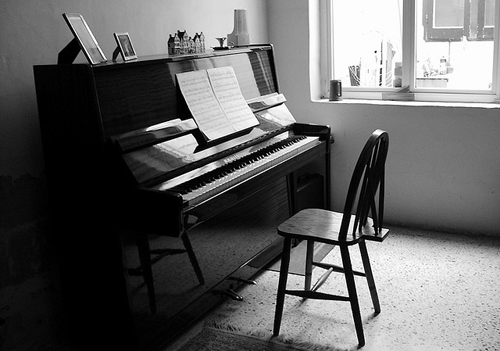
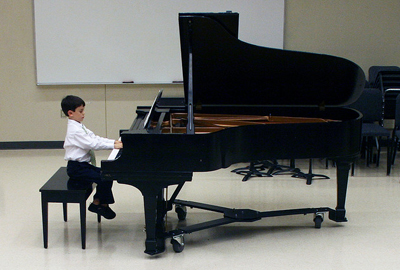
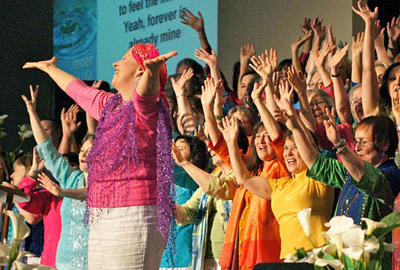

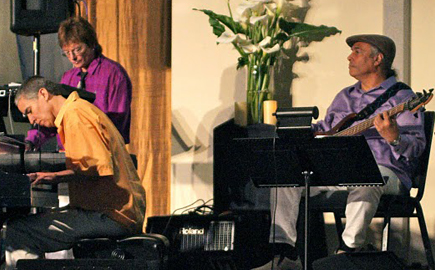
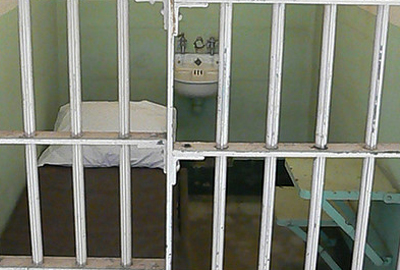
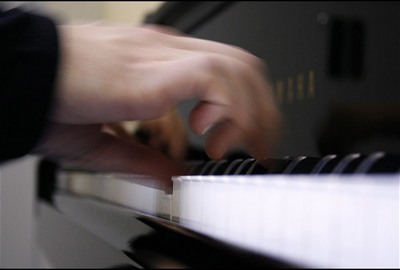
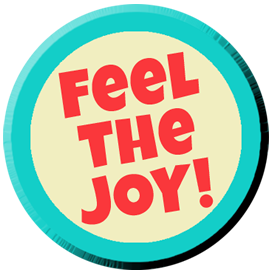
omg z, fantastic! love it! and you truly are a superior pianist. i’m just sayin’. 😉 my latest prison break (last night, actually), was the prison of my mind. i get so “stuck” in my head and having the “right” answers – the text book answers – that i disconnect from my heart. (not to mention that the immeasurable fear i have of being “wrong” makes me unteachable) i forget that for my course of study (or anything else, for that matter) technique is important, but it’s the HEART that makes me good at what i do. so i am opening to that space that allows me to show up in love and as love and be teachable again. <3
Hi Squirrel, I love what you said about the prison being our minds. And how focusing on the heart is so often the way out. Yes! What a great reminder. I have to remember that one again and again and again. XOZ
Great post, Z. And really, when it comes down to it, such simple advice: Focus on what went RIGHT.
Hi Laura, It is such simple advice, isn’t it?! I’m always so grateful when I remember to do it. Puts everything in the proper perspective! XOZ
You never fail to leave a heart felt smile on my face Z. It’s a bit of a mystery how the love and appreciation meant for you or me could not “get home,” or sink in. I mean it is love and appreciation, we’re not talking about junk mail here. Like you I notice it won’t be received until I actively allow it. I think I have discovered that somehow a part of me is actively… not allowing… the love in… sort on the basis that it’s worried that I might somehow be at risk in some way if I really get how much love and appreciation could be for me. Maybe any change seems worrisome. And thanks to Squirrel to for naming the part that carries “the immeasurable fear of being ‘wrong’ ” that can make me also unteachable. For me that part seems to think that holding perfectly still will keep anyone from noticing me. But then there’s the part that says it finds being invisible painful too! So this morning I find a new friend saying, “lives are meant to be shared.” Duh. Maybe I could pause and really take in the whole of That! Thanks for inviting us back to the…oh yeah, I can ask for help, look the whole universal field is right here waiting with its unconditional… Love. And look the bars are melting… Thank you Z!
HI Laura, Thank you for your beautiful words. Yes – it’s a constant moving and shifting and remembering all the good that’s already there for us. And the bars melt away. Yes! XOZ
Z, I can’t wait for Dyan to read todays blog. I think she can apply “Piano prison” to X-ray prison. Very very good advice. Thank you
Hi Connie, Yes – pass it along to her! Piano prison and X-ray prison are exactly the same. It’s amazing how well the simple shift of focus can change everything. . . . XOZ
It was a moment to moment practice to look for the good in all. Every day in every situation I began to see the gift, the good, the reason. I began to learn by this practice, that everything that seems uncomfortable, wrong, bad, broken, dum or mistakes, errors, missing the mark…were God’s way of actually showing me the way to Greatest, to Good, to the Divine Plan. Soon this way of thinking became an in grain automatic responds to life and everything that it brought to me. I was free and out of the prison of the way I use to respond to life. Today my first responds is: Love. What would love do? Oh Happy DAY!! Thank you Z!!! I love seeing you PLAY! I love that you are with us IN Tenor!! I love watching us GROW! I love YOU! xoxoxoox
msrosie
Hi MsRosie, Thanks for your comments and for your bright, light spirit! Mighty Tenors know no bounds!! XOZ
Hi Z,
You don’t know me. I am a complete stranger from a far off land who happened to find your wonderful blog because I googled “gender-flexible-88 keys tickling-goofball” and your blog came up! Somewhere like on page 3 or so.
Keep up the GREAT work! I hope you are having fun!
Blessings and see you later at our meeting.
Annette
Hello Annette!
It is Annette, right?! Wow, that’s awesome that you randomly found me here. Page three, you said?
I’m glad that you are enjoying my little blog. I look forward to reading more posts from SOMEONE ELSE’s blog as well. Very soon.
See you soooooooon.
XOZ
Terrific blog Z! Piano prison…maybe you could just drop by on visitors day, you know, for a few minutes? Or no.
Hi Jo, Great concept – Visitors Day only. I like it. Or not at all! That would be even better. I’m getting there. . . . XOZ
Hi Z! Thanks so much for the great advise. You had perfect timing. David and I are going to be at a convention this week in the City for our business. When we’ve done these conventions in the past I always focus on what I did or said wrong and beat myself up about it for weeks! It’s post-convention hell! Arrrrhhhh. Anyway, I will take your advise and focus on what went right this time. Thanks again, and I’ll let you know how that works for me! Love, Wy
Hi Wy, I love it. Synchronicity. I would love to know how it goes for you. No more convention prison for you! XOZ
I adore you and these are so wonderfully fun and smart at the same time. To quote a friend of our with an animal name “oh my gwad, who knew, right?” I am so so so blessed that they let you out early for good behavior and now I get to have you playing for The One Heart Choir. Not to mention that you are so unstressed in rehearsals. Really helps me keep my cool too! Not that I ever am not cool, just saying.
Hi Claire!!!!! You are always cool. You can’t help yourself! I’m so glad they let us BOTH out for good behavior! Now we get to romp and roll with the One Heart Choir. Good times. XOZ
~Z~ You inspire me! I believe breaking out of piano prison (in the way you have at the center) also includes having the talent to do so, which you possess in abundance ! Thank you for the reminders to focus on the good and tune into Spirit – again and again and again – whether it is piano prison, “X-ray” prison, or any constriction whatsoever. AND I very much appreciate the wonderful lightness of Being you embody and how you delightfully season us all with humor! I feel so Grateful you joined the One Heart’s!
=o=
Pamela
Hi Pamela, I’m so grateful to BE in the One Heart Choir with all of you. What a blessing. And thank you for sharing my blog with me! XOZ
Dear Z,
Been there, done that SO-O-O-O-O many times. Now, when the pounding heart starts, I use it as a reminder to stop and give thanks for the gift I have been given, the opportunity to share this gift, and the courage to “get my bloated nothingness out of the way” and let Spirit show up and express! And even though it’s never “perfect” in my mind, somehow I know it is exactly perfect in my heart. And not only perfect for me, but perfect for who is listening. A year or so ago, I sang a song that I could NOT reach the notes properly in the first verse ALL three times I sang it! I was SO distraught, I cried for days! But what blows me away is that I am STILL getting compliments on that particular song from people saying how much it touched their hearts. I’ve come to understand the gift that is given from the heart is indeed recognized and well-recieved and THAT is what is important.
Love you, dear Z, and I love your blogs!!!
JoAnn
Hi JoAnn, Thank you for that awesome story. I love how this all works! Thanks for sharing who you are and all that you do. And thanks for letting the music flow through you and giving from your heart. XOZ
I saw you play. I know that you have the ability to hear the music and it comes out your fingers automatically. Just like when you speak, you merely have to think ideas and the words come out automatically. Once you can play your mind, it’s mostly a matter of how you think the music.
HI Jim, I love this. It’s a great way to think about playing. The other element for me is the heart. Feeling is in there for me as well as thinking. However it works, I love to play! And I love your playing as well. XOZ